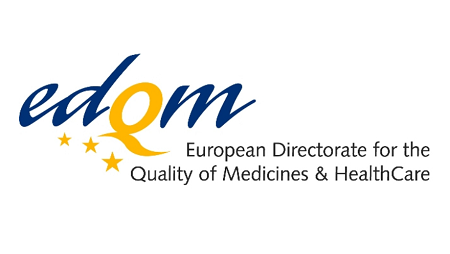On June 20-21, 2023, the 176th session of the European Pharmacopoeia Commission (EPC) was held in Strasbourg, France, in which Natalya Volovyk, Deputy Director for Quality of the Ukrainian Scientific Pharmacopoeial Center for Quality of Medicines, took part via video conference.
During the session, the expediency of removing or introducing a number of monographs into the European Pharmacopoeia was discussed. The European Pharmacopoeia Commission approved the removal of one monograph and the introduction of 67 monographs, including 11 new monographs and three new general chapters, into Supplement 11.5 of the European Pharmacopoeia (effective date: July 1, 2024).
Among the new monographs are:
- Cannabis flower (3028) and Cannabidiol (3151), isolated from the Cannabis sativa L. plant.
- Oxygen (98 per cent) (3098), which will enable healthcare facilities to control the quality of on-site produced oxygen using a two-stage adsorption process to remove nitrogen and argon from the air.
- Mycoplasma gallisepticum vaccine (live) for chickens (3133).
The new general chapters include:
- Monocyte-activation test for vaccines containing inherently pyrogenic components (2.6.40).
- Comparability of alternative analytical procedures (5.27), which provides users with more detailed information on implementing alternative analytical procedures instead of pharmacopoeial ones, allowing greater flexibility in confirming compliance with the European Pharmacopoeia monographs.
- Particle size analysis by dynamic light scattering (2.9.50), which is the first new text to be prospectively harmonized within the Pharmacopoeial Discussion Group (PDG) with the Japanese Pharmacopoeia and the United States Pharmacopeia. This chapter describes a technique important for measuring the size and size distribution of submicron particles dispersed in a liquid, which is particularly relevant for the characterization of nanomedicines.
The Commission adopted revised versions of 53 texts, including:
- general chapter Monocyte-activation test (2.6.30), which was optimized to align with current practices. This technical revision is part of a broader effort to remove the rabbit pyrogen test described in general chapter 2.6.8. Pyrogens from the European Pharmacopoeia and is the first step in this direction. For details see www.edqm.eu/en/-/europeanpharmacopoeia-to-put-an -end-to-the-rabbit-pyrogen-test.
- general chapters on powder characterization (2.9.34; 2.9.36; 2.2.42);
- the general monograph Methods of preparation of homeopathic stocks and potentiation (2371), which now includes the manufacture of homeopathic preparations by the Korsakovian method (single-flask potentiation method), which is used in several European countries.
The list of all adopted texts is available on the European Pharmacopoeia Work Program webpage.
During the session, the feasibility of developing monographs on cannabis extracts was discussed. The participants concluded that there is a need for monographs for the proper quality control of cannabis medicines; however, since in most countries the use of cannabis, even in pharmaceuticals, is illegal or only allowed in isolated cases, and only a small number of manufacturers are allowed to produce medicinal products with cannabis, the data for the development of monographs on pharmaceuticals containing cannabis are currently insufficient.
The Commission also reviewed and approved a revised version of the general monograph Pharmaceutical Preparations (2619), adding a new paragraph "Related Substances," allowing regulatory authorities to approve expanded limits compared to the European Pharmacopoeia monograph in justified cases. The national regulatory body must bring such decisions along with their justifications to the attention of the secretariat of the national pharmacopoeial body and subsequently to EPC for further review of the relevant pharmacopoeial monograph and, if necessary, its revision.
A strategy for identifying N-nitrosamine impurities in individual monographs was adopted, necessitating the revision of several monographs.
The heads of expert groups presented progress reports on the implementation of work plans. Discussions were held on the wider involvement of specialists in expert groups and increasing their motivation, and nominations from national pharmacopoeial secretariats or authorized laboratories for experts and heads of expert groups were approved.
The next session of the European Pharmacopoeia Commission will take place on November 21-22, 2023.



